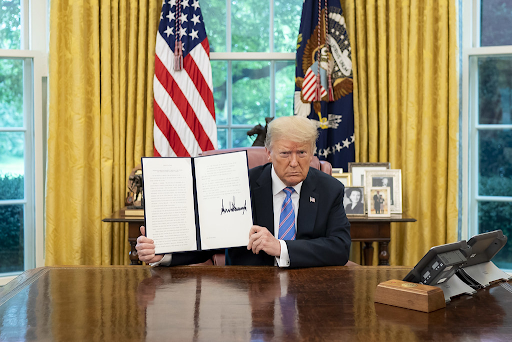A critical omission in a UK-US trade deal negotiated five months ago has come back to haunt the British government, as Donald Trump threatens a 100% tariff on the unprotected pharmaceutical sector. While the deal, brokered by Keir Starmer, successfully shielded cars, steel, and aerospace goods, its failure to include pharmaceuticals now looks like a major strategic blunder.
The consequences are now starkly clear. The UK’s world-leading pharmaceutical industry is in the direct line of fire of a protectionist policy that could devastate its exports. The government is now playing catch-up, with a spokesperson admitting the situation is “concerning” and confirming that “actively engaging with the US” is a top priority ahead of the October 1st deadline.
This vulnerability is made more poignant by the fact that Trump had personally promised the UK “preferential treatment” on drug tariffs just a few months earlier. That promise has been swept aside, underscoring the unpredictable nature of the administration’s trade policy and the danger of relying on informal assurances. The recent state visit, intended to solidify the transatlantic alliance, similarly failed to deliver tangible protections.
There may be a way out for some, however. Market analysts speculate that the tariffs are not a blanket measure but a targeted strike against companies that don’t manufacture in the US. This would reward firms for onshoring production. If correct, this would explain why major European drug companies with US plants, like Roche and Novartis, are not expecting to be affected.
But this offers little comfort to the UK as a whole, or to other European industries caught in the crossfire. A 25% tariff on trucks has been slammed by German auto makers, who warn of dire economic consequences. The episode serves as a powerful lesson on the importance of comprehensive trade agreements that leave no critical sectors exposed.


